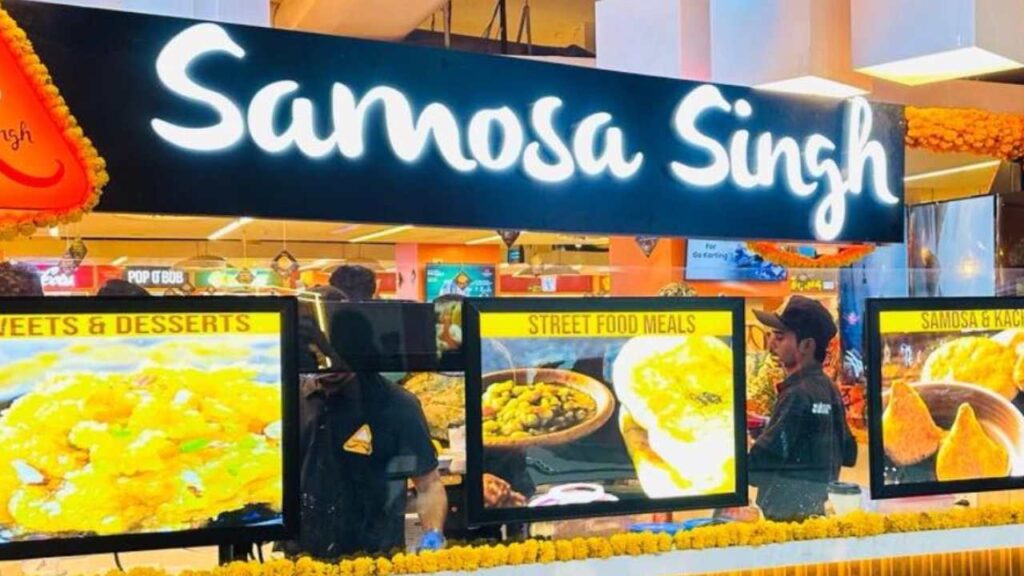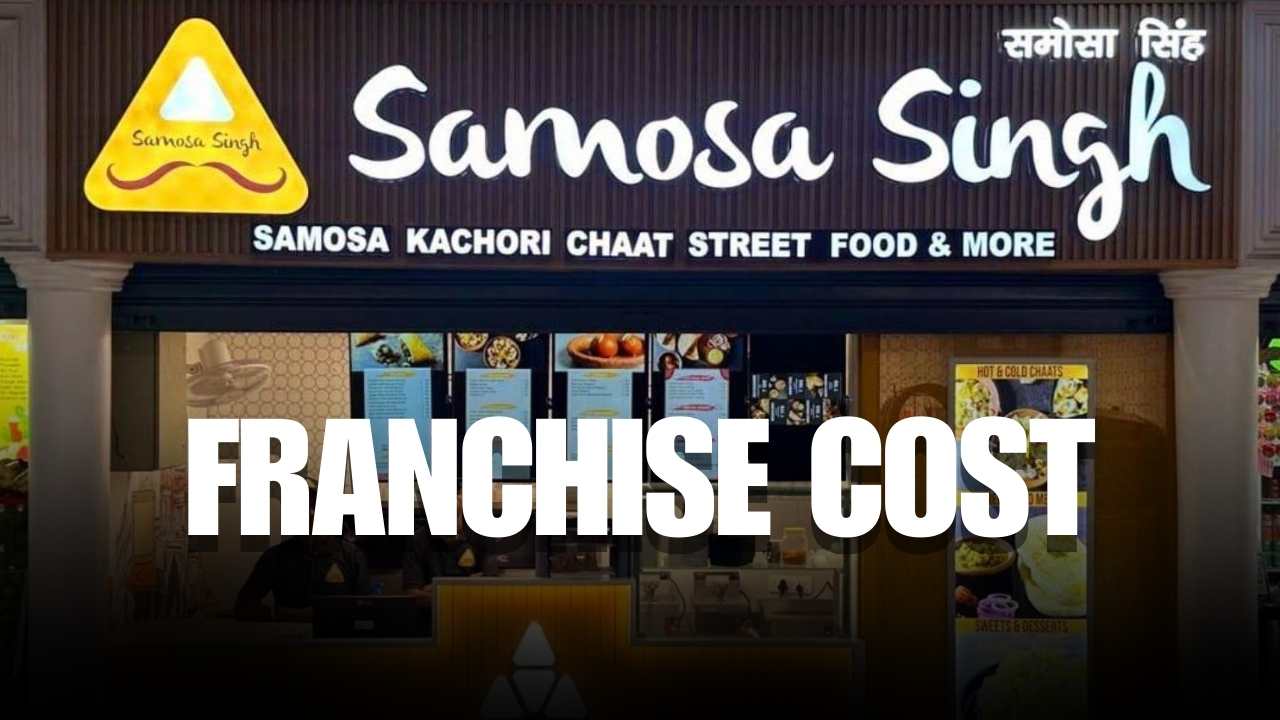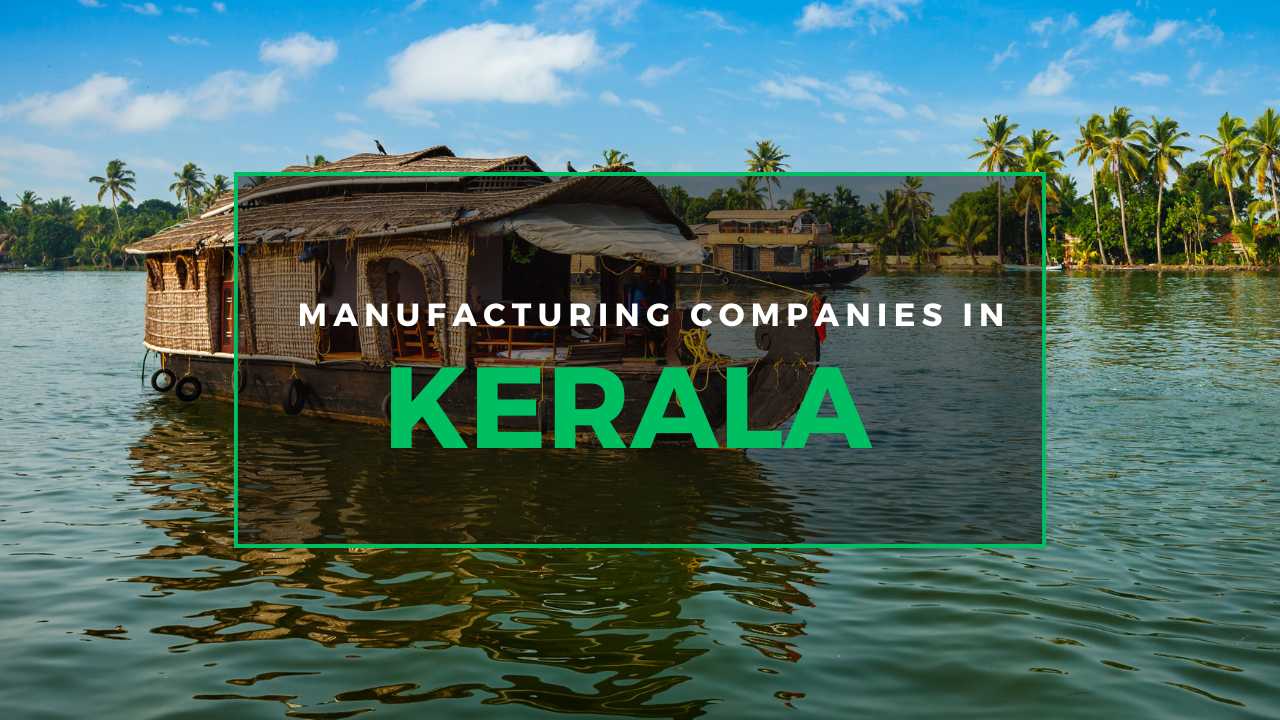The Indian QSR (Quick Service Restaurant) market, valued at $25.46 billion in 2024, is set to grow at a CAGR of 8.74%, reaching $38.71 billion by 2029. This growth is by changing consumer preferences, increasing urbanization, and a rising demand for convenient food options. Amid this expansion, food franchises have become an attractive opportunity for business entrepreneurs.
Samosa Singh is one of the fastest-growing food franchises in this booming market. It reinvents traditional samosas with innovative flavors and consistent product quality. Launched in 2016 by founders Shikhar Veer Singh and Nidhi Singh, the brand quickly expanded to multiple locations across India, backed by venture capital investments from major firms.
Understanding the Samosa Singh Franchise Cost, investment requirements, ongoing expenses, and earning potential is crucial for aspiring franchise partners. This guide provides comprehensive insights into Samosa Singh’s franchising process, offering a roadmap for entrepreneurs looking to join one of India’s most promising QSR brands.
About Samosa Singh

| Category | Details |
| Founder | Shikhar Vedvyas and Nidhi Singh |
| Founded In | 2016 |
| Products Offered | Variety of samosas (Masala Corn, Kadai Paneer, etc.), chaats, kachoris, desserts, beverages, etc. |
| Number of Franchises | Over 50 outlets across India |
| Target Audience | Primarily urban, working professionals, college students, and families |
| Franchise Cost | ₹15-25 lakhs (includes ₹3-8 lakhs franchise fee, setup, interiors, and machinery) |
| Royalty Fee | 5-7% of monthly sales |
| Space Requirement | Minimum 300-1200 sq. ft. |
Founded in 2016 by Nidhi and Shikhar Singh, Samosa Singh started with a vision to rethink the concept of the samosa. The Bengaluru-based brand has risen to a fabulous rank as quickly with its innovative twist to the classic snack item while maintaining authentic flavors.
Samosa Singh has distinguished itself in the competitive Indian food market with its unique selling propositions. Samosa Singh offers more than 40 inventive samosa options at its core business, expanding beyond classic potato-filled samosas to gourmet choices such as chocolate, pizza, and pasta varieties. Health-conscious consumers have strongly embraced the brand due to its commitment to zero trans fats and 100% refined oil, ensuring nutritious and high-quality snacks.
Brand USP & Revenue Growth
The company’s revenue growth has been impressive, reaching approximately ₹12 crore in FY 2021-22 and expanding to ₹18 crore in FY 2022-23, representing a 50% year-over-year growth. In 2020, She Capital and Al Falaj Investment Company provided Series A funding of ₹17 crore, validating Samosa Singh’s business model and supporting its expansion strategy.
With 15+ operating locations in Bengaluru, Hyderabad, and other major cities, Samosa Singh is rapidly growing and aims to expand to 100+ outlets by 2025. This makes it a lucrative opportunity for potential franchisees. Understanding the Samosa Singh Franchise Cost is essential for investing in this high-growth, innovative food brand.
Why Choose the Samosa Singh Franchise?
1. Reputed Brand Name
Samosa Singh has created its niche within the Indian snacking market. The brand’s quality and innovation ensure that customers stick around, and thus, business will follow the franchisee more effortlessly.
2. Variety Menu
The brand doesn’t sell just samosas; the menu includes other snacking items like kachories, chaat, drinks, and sweets. This variety draws a larger audience and retains good footfalls.
Samosas & Kachori
- Soya Keema Samosa
- Veggie Spice Samosa
- Kadai Paneer Samosa
- Masala Corn Samosa
- Cheese Chilli Samosa
- Manchurian Samosa
- Cheese n Corn Samosa
- Punjabi Aloo Samosa
- Aloo Pyaaz Kachori
- Dal Kachori
- Make Your Own Bucket
- Onion Samosa
- Achaari Paneer Samosa
All Day Breakfast
- Vada Pav
- Aloo Tikki Pav
- Aaloo Samosa Pav
Chaat
- Samosa Chole Chaat
- Tikki Chole Chaat
- Ragada Pateez
- Dahi Bhalla
- Dahi Papdi Chaat
- Aloo Pyaaz Kachori Chole Chaat
- Dahi Samosa Chaat
- Bhalla Papdi Chaat
- Pyaaz Kachori Dahi Chaat
Mini Meals
- Pav Bhaji
- Chole Kulcha
- Dal Kachori & Aaloo Subzi
- Chole Bhature
- Mattar Kulcha
- Chatpata Aloo Kulcha
- Paneer Kulcha
Desserts
- Gulab Jamun
- Moong Dal Halwa
- Rabri
- Rasmalai
3. Business Model Set Well
Samosa Singh operates on a franchise-friendly business model with standardized processes, including efficient supply chain management, to avoid probable risks for franchisees and smooth operations.
4. Low Franchise Cost
Even though the cost of this brand outlet at a particular location and of a specific size may differ, the Samosa Singh franchise cost is relatively low compared to that of other QSR franchises. A franchisee would typically pay an investment amount between ₹15–₹15 lakhs towards the infrastructure and equipment, training and branding, among others.
5. Support and Training
Extensive training programs, operational support, and marketing assistance deliver a brand that enables first-time entrepreneurs to be successful.
6. High ROI Potential
Rising demand for branded snacks and competitive pricing at the Samosa Singh franchise will provide a healthy return in a few years.
Samosa Singh Franchise Cost Breakdown
All prospective entrepreneurs who want to start a Samosa Singh franchise must understand the complete cost structure to establish proper financial strategies. Here’s a comprehensive breakdown:
Franchise Fee: The franchise fee requires a payment of ₹5-7 lakhs where the fee remains non-refundable and provides brand rights and initial business support.
Store Setup Costs:
- Kiosk format (100-150 sq ft): ₹6-8 lakhs
- QSR format (300-500 sq ft): ₹10-12 lakhs
- Cloud kitchen model: ₹8-10 lakhs
Equipment Investment: The equipment expense for Samosa Singh franchise operations amounts to ₹3-4 lakhs, which covers commercial deep fryers, refrigeration units, storage equipment, and POS systems.
Interior and Branding: The costs for interior and branding range from ₹2-3 lakhs but differ depending on the location and selected store format.
Legal and Licensing: ₹50,000-1 lakh (FSSAI registration, local municipal permissions, GST registration)
Initial Inventory: The initial inventory for raw materials, packaging materials, and consumables amounts to ₹75,000 to ₹1 lakh.
Working Capital: Working Capital should amount to ₹3-4 lakhs because it ensures operational stability during the initial three months.
Royalty Fee: 6-8% of monthly gross sales (ongoing)
Marketing Fee: The Marketing Fee consists of a 2-3% percentage fee that is applied to monthly gross sales for national and regional marketing campaigns.
The total investment costs for a Dairy Cake House franchise range from ₹ 15 to 25 lakhs and depend on the business site selection, format type, and market characteristics. Metro locations with prime positions require extra initial capital investment, yet they deliver elevated sales amounts. Bank loans and specific funding programs through the franchisor provide financing options to eligible applicants.
Ideal Locations
- Commercial Hubs & Office Areas: High footfall zones catering to professionals seeking quick snacks.
- Malls & Shopping Centers: Busy food courts with diverse audiences, from families to shoppers.
- Educational Institutions: Near schools/colleges for affordable, student-friendly options.
- Transit Points: Railway stations, bus terminals, and metro hubs attract travelers seeking portable snacks.
- Residential Areas: Proximity to housing complexes ensures steady demand for delivery and family snacks.
Factors to Consider
- Foot Traffic: Ensure consistent, high footfall.
- Accessibility: Easy access and parking for dine-in and takeaway customers.
- Competitor Analysis: Limited direct competition from other snack outlets.
- Target Audience: Proximity to your ideal customers (office-goers, families, students).
- Delivery Potential: Locations that support high online delivery demand.
By choosing the right location, franchise owners can maximize footfall, brand recognition, and profits.
Essentials for a Samosa Singh Franchise
Before joining a franchise of Samosa Singh, you must satisfy all of the following requirements:
1. Location
To be very brief, a location that is sought after is essential for success at your outlet. Preferred locations include malls, shopping centers, high-street areas, and near educational institutions or IT hubs. It depends upon the type of outlet, which varies between 250-500 sq. ft.
2. Investment Capability
The total investment to begin a Samosa Singh franchise cost is ₹30-₹50 lakhs, which would be a total package for the franchise fee, infrastructure setup, equipment, and working capital.
Required Documents
To apply for a this franchise, you will be required to produce the following documents:
- Personal Identification: Aadhaar card, PAN card, and passport-sized photographs.
- Business Proof: GST registration, business registration certificate, and shop establishment license.
- Financial Documents: Bank statements and proof of investment capability.
- Property Documents: Lease agreement or ownership documents of the proposed location.
- NOCs and Approvals: No Objection Certificate from the local authorities and food safety certifications.
3. Passion for Food and Business
As a franchisee, the company should be interested in the food industry and willing to follow the brand’s standardized procedures.
4. Staffing and Training
Hiring the best staff by the brands with proper training ensures smooth operations and delivers true customer service.
5. Compliance
The business needs to comply with the laws of food hygiene and safety, as well as neighborhood business permits and licenses.
Steps to Start a Samosa Singh Franchise in India
Step-by-step process of launching your Samosa Singh outlet is as follows:
1. Research the Brand
Check out Samosa Singh’s official website or contact their team to learn how the franchise model works, what investments are needed, and what returns can be expected.
2. Application Submission
Fill the franchise inquiry form that is displayed on their website. Provide information like the preferred location, investment potential and previous business experience if any.
3. Discussion and Approval
Their contact will reach you after reviewing your application to discuss with you. They will go ahead to consider the viability of the proposed site as it goes to suit their business purposes.
4. Signing of the Franchise Agreement
After mutual understanding, sign the franchise agreement. This is legally binding to both parties and sets down terms like franchise fee, operational guidelines, revenue sharing and more.
5. Setup and Training
Work on setting up infrastructure, acquiring equipment and hiring staff. Samosa Singh gives comprehensive training in food preparation, customer service, and management practices.
6. Launch Outlet
Plan an elaborate launch once everything falls in place, supported by the brand’s marketing team in order to attract the customers and buzz things up in your area.
Support and Training Provided by the Brand
One of the most important advantages of this franchise is that they provides full training and support to their franchisees. Here’s what you can expect from Samosa Singh as a franchisee:
1. Pre-launch Support
- They help you choose the site and its evaluation so that the outlet you take up would be at an ideal location.
- Brand standard guidance on design and infrastructure.
- Facilitates procurement of equipment, raw materials, and all kitchen essentials.
2. Complete Training
- Technical training to employees on food preparation, handling, and all aspects of service in the restaurant
- Management education for franchisees about easing their operations for profitability.
- Technology education on using POS systems and tools for managing its stock level.
3. Continual Operational Support
- Continuity in managing the supply chain for raw materials as well as packaging material
- Regular quality checks and audits to maintain standard
- Marketing and promotional activities to increase visibility and sales
4. Marketing Support
- Samosa Singh will support digital marketing, social media promotion, and local advertising to attract customer traffic.
5. Technical Support
- A dedicated team for the resolution of operational and technical issues. Such support will help first-time entrepreneurs to run a successful franchise as well.
Is Samosa Singh Franchise a Good Business Opportunity?
The Samosa Singh franchise model offers investors a favorable business opportunity requiring lower startup costs than other food franchises. The Samosa Singh Franchise Cost for establishing a Samosa Singh outlet falls between ₹15-25 lakhs, yet changes according to location choice and store dimensions as well as kiosk, QSR, or cloud kitchen format.
Various elements determine the profitability of Samosa Singh franchise businesses:
- The quality of the location drives rental costs upward because busy commercial zones enable higher sales volumes.
- Kiosks need lower initial investment, yet their capacity remains restricted.
- The level of market competition changes according to local conditions as well as customer response to pricing decisions.
- Operational efficiency and inventory management.
The financial model shows Samosa Singh franchisees reach financial stability within 1 to 1.5 years. The revenue from each Samosa Singh outlet reaches between ₹4-8 lakhs per month, while delivering profit margins of 20-25% once all operational costs have been paid. The brand’s recognition, combined with its broadening product range, enables Samosa Singh franchisees to sustain consumer engagement and repeated purchases, which supports everlasting profitability in the competitive QSR sector.
Pros & Cons of Samosa Singh Franchise Business
Pros:
- Brand Positioning: Good presence in the consumer confidence market. Having an outstanding level of market presence.
- Low Investment: The fee paid to franchises is relatively very moderate as against other quick service restaurants.
- Product Offers: New taste and hygienic preparation Differentiates the company in the market.
- Framing Support System: The company’s elaborate hand-holding helps first-time entrepreneurs run their businesses well.
- Scalability: The superior performers may multiply at different locations.
Cons:
- Highly competitive industry: The food and snack industry is one of the most competitive, especially in urban areas.
- Highly dependent on location: Success highly depends on the outlet’s location and footfall.
- Rigid operational instructions: Only as much flexibility as the outlets need to be run according to the brand’s standardized processes.
- Recurring Royalty Fees: Although these are required for support and branding, they do reduce profit margins.
Conclusion
The Samosa Singh franchise is undoubtedly an excellent low-cost food franchise business proposition for any entrepreneur interested in entering the fast food industry. It offers the advantage of an existing brand, a unique product offering, and a comprehensive support system that propels franchisees toward success. Of course, such competition and strictness in operations would be the two biggest challenges, but the great potential for returns would indeed make it a very smart investment.
Discover More Topics Like This:
- Subway franchise cost in india
- Haldiram franchise cost in India
- Mcdonalds franchise cost in india
- Pizza hut franchise cost in india
FAQs
What is the investment for a Samosa Singh franchise?
The total amount of investment is between ₹30 – ₹50 lakhs, depending on the location and outlet size.
Is prior experience necessary to initiate this franchise?
No, prior experience is not required. The brand provides intensive training and operational support.
How long does launching a Samosa Singh outlet take?
Establishing a standalone outlet takes approximately 3–6 months, depending on the location and available infrastructure.
What is the profit margin for a Samosa Singh franchise?
The profit margin will be around 20-30%, depending on the location and sales volume.



